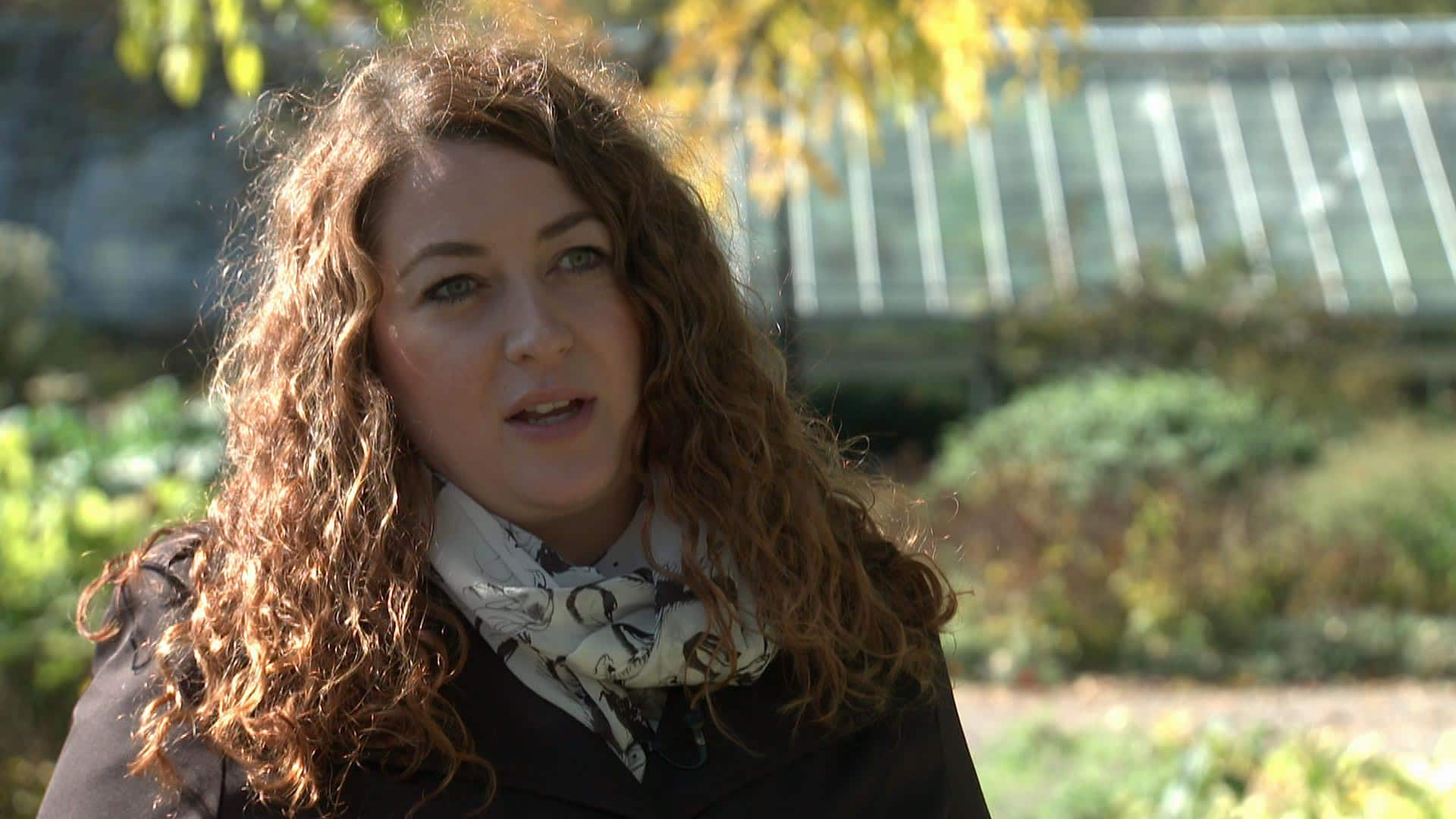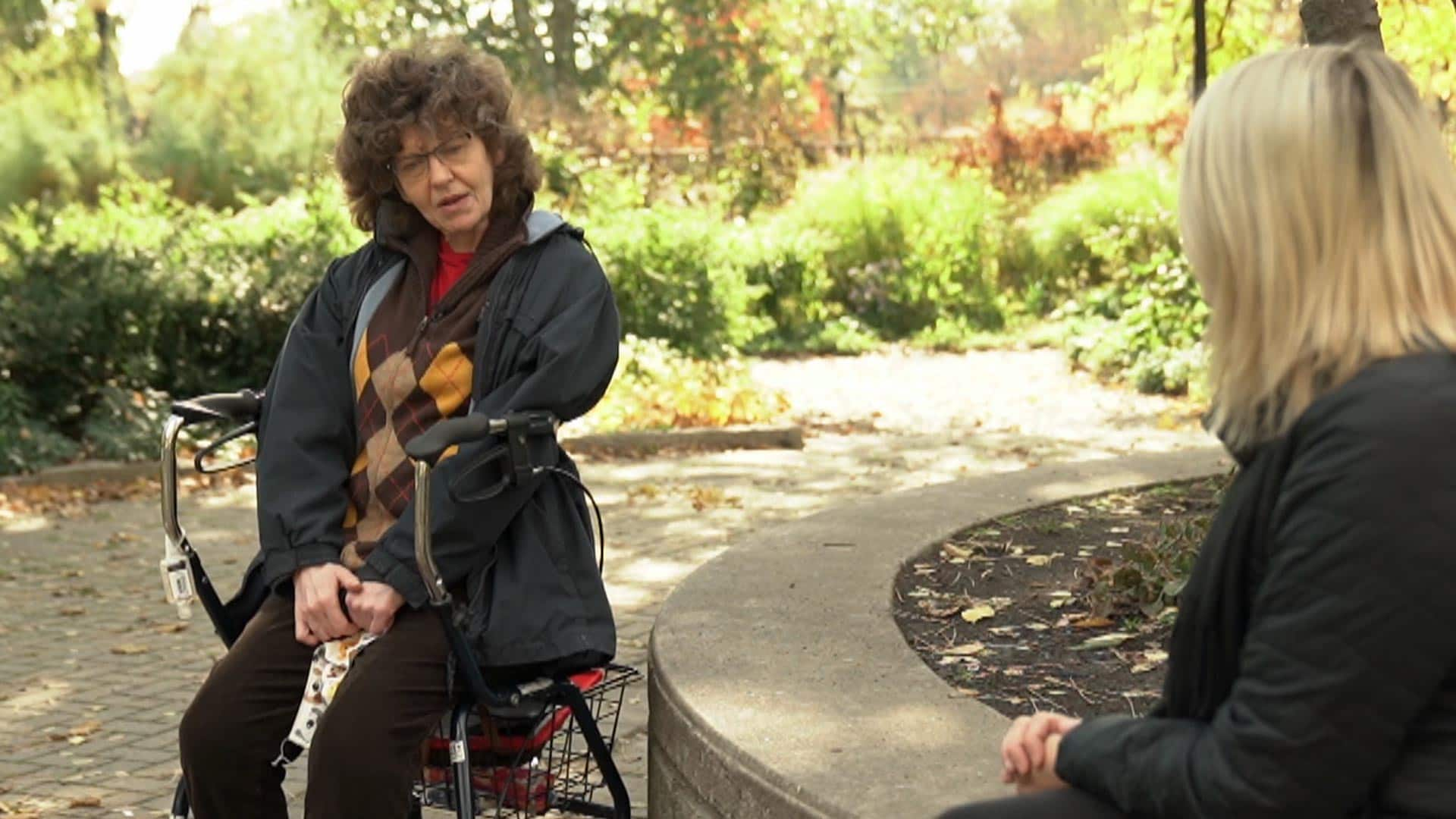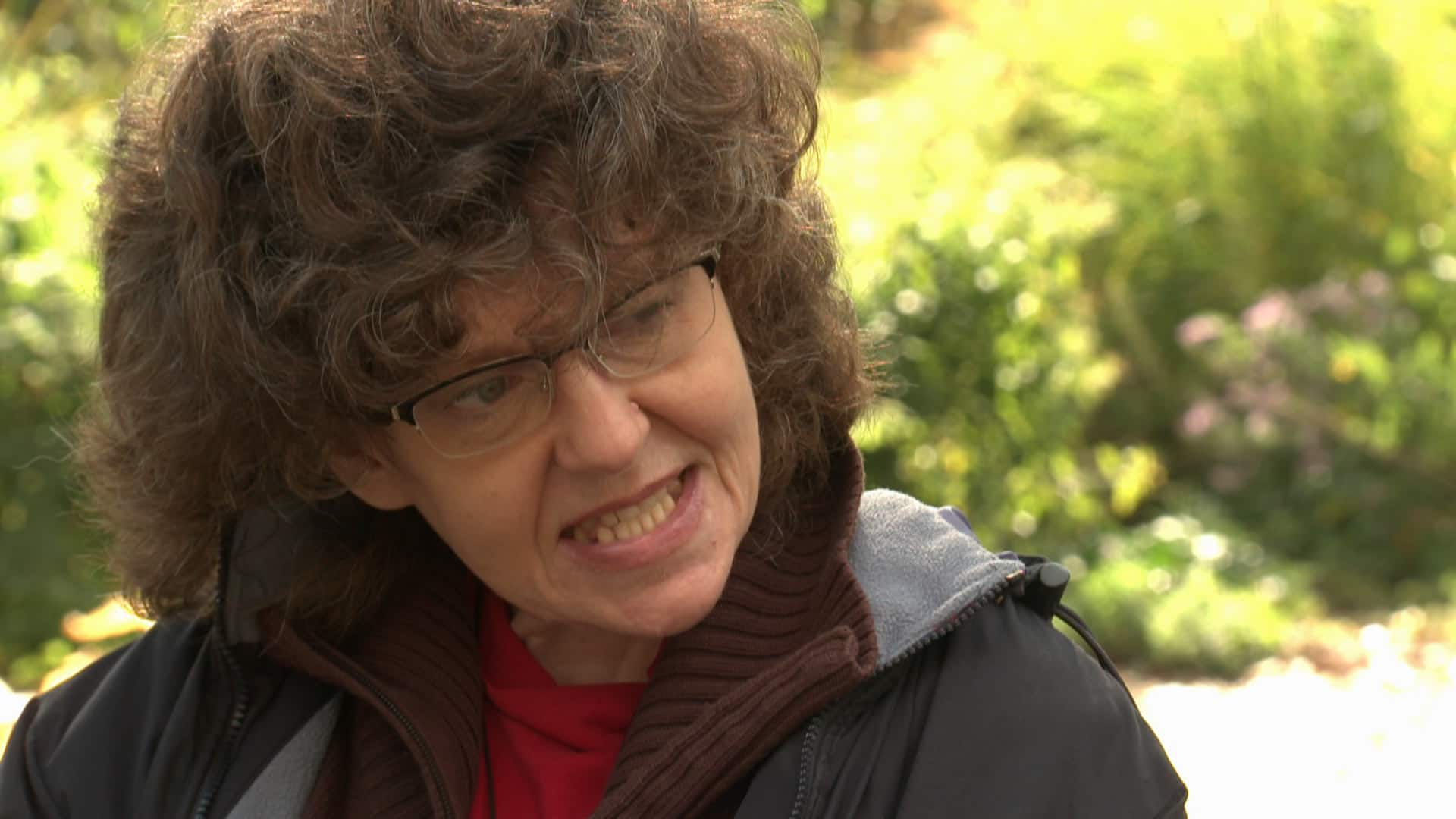Pandemic disruptions create difficult challenges for people with cognitive issues
[ad_1]
The pandemic has been tough on most Canadians, but adjusting to new behaviours and rules has been especially difficult for people with cognitive challenges.
“It felt initially like a big lump fell on top of me,” said Kate Buziak, describing her struggle to absorb all the safety precautions around COVID-19. “Oh my God, remember this, remember this. Then I just said take one step at a time.”
Buziak’s life changed forever in 1994 after a heart attack left her with brain damage. The former retail manager had to overcome permanent memory and mobility challenges.
The 56-year-old now resides in an independent living facility in downtown Toronto. Learning and remembering to wear a mask, to physically distance, and constantly wash her hands has taken her some time to master. Buziak admits she still struggles with it.
But it was also important, “Because I don’t want to die. Simple as that,” Buziak said.
“I have to tell myself, OK … six feet apart, six feet apart. I always tell myself that. At home there are markers at the dinner table. So that’s good,” Buziak said. “But it’s not easy.”

It also hasn’t been easy for caregivers.
“I think my biggest worry was having people either not be able to do it or not understand, and then having [COVID-19] get into the residence,” said Heather McKay, the manager of Cota in Toronto which runs the facility where Buziak lives.
The community health nurse says so far they’ve managed to keep their four living facilities COVID-free, in part through patient and constant reminders to the residents.
“People with cognitive challenges have difficulties with memory. So anything that’s introduced that’s new to them takes a lot of repetition,” McKay said.
People with acquired brain injuries rely heavily on routine to thrive. McKay said the precautions required to prevent the spread of COVID-19, along with other pandemic-related changes to daily patterns, have upended all that.
“Monday I do this, Tuesday I do this, and [new things] don’t fit into their regular routine,” McKay said. “So when someone is used to getting up in the morning, brushing their teeth and they walk out the door, now it’s a number of extra steps. Like, do I have my mask on me? Do I have it on properly?”

Heather McKay, manager of the Cota facility in Toronto, describes how staff works with clients who have cognitive issues to help them remember what they need to do in order to help prevent the transmission of COVID-19. 0:19
A lot of the work of helping people learn those extra steps fell to supportive care workers like Laverne Blair.
“I think it’s better now, but at the beginning it was hard for some of them to comprehend that you need to wear a mask, because this is something that would help to protect not only you, but someone else, your peers,” Blair said.
It took weeks, and in some cases months, but Blair said it was important to equip people with the skills they needed to keep themselves and others safe.
“Knowing that the clients would get out into the community and be dealing with all the people was worrisome. And how would they adapt to what’s out there? I mean, when you’re inside, you can be a bit more protective. But when you’re out there, you’re exposed to different elements in the environment,” Blair said.

Inside the building where Buziak lives, tape runs along the floor of the few common areas to remind residents to give one another space. Signs are posted on seats and the walls in a dining area as a constant warning to distance.
Staff have also tailored memory prompts to each client’s needs: some do better with visual cues, others with verbal reminders.
Buziak works best with visual cues, so a bright collection of masks now hangs on a hook directly in her eyeline by her door. She stops, leans against her walker and selects one before heading out.
“So I can’t forget them, like, they’re everywhere. You have to put them where you will see it so you won’t forget it,” Buziak said.
The coronavirus also took a big bite out of Buziak’s social schedule. Her craft-making and cooking groups were all cancelled because of coronavirus, and family visits have been severely limited by the pandemic.
“For a while I felt not so much lonely, but disconnected. Out of the loop, not knowing what was going on. That’s difficult,” Buziak said.

Kate Buziak, who suffers from memory issues as a result of a heart attack, talks about how she’s coping with changes brought about by the pandemic that have affected her important daily routines. 0:25
To ward off loneliness, she’s trying to learn one more skill: Zoom. Logging on and remembering each step to start the conversation can be a little bumpy, but Buziak says it is worth it.
“It’s fantastic,” she said. “When I see my mum or cousins, my heart goes beep beep.”
It’s been an uphill struggle, but Buziak says her new COVID-19 survival skills make her feel safe and confident enough to go outside again and run simple errands for herself.
It has also left her wondering why some people aren’t following the COVID-19 guidelines she has had to work so hard to master.
“When I leave I wash my hands, put on my mask and things like that. But I look around and I see people outside not wearing a mask. And that makes me wonder why people are not wearing a mask?” Buziak said.
“I want to say, ‘get a mask on.’ Seriously, it’s not rocket science.”

Kate Buziak, who has cognitive issues, talks about her frustration when she sees people who aren’t following the COVID-19 precautions she has had to work so hard to master. 0:21
[ad_2]
SOURCE NEWS
